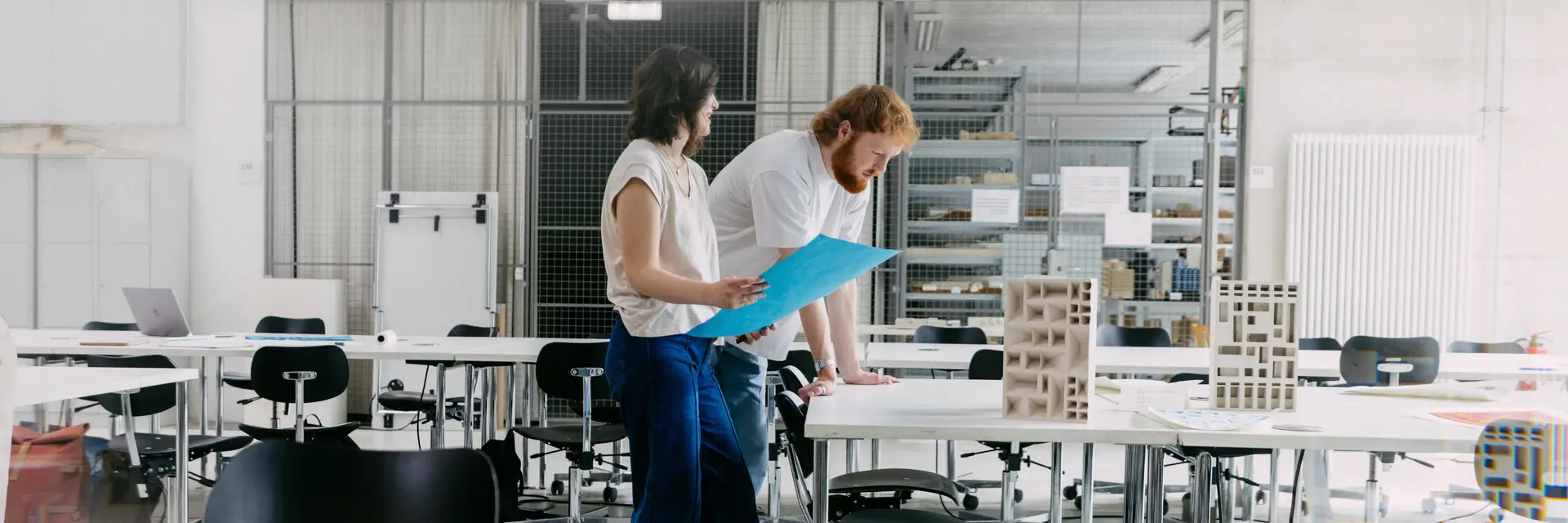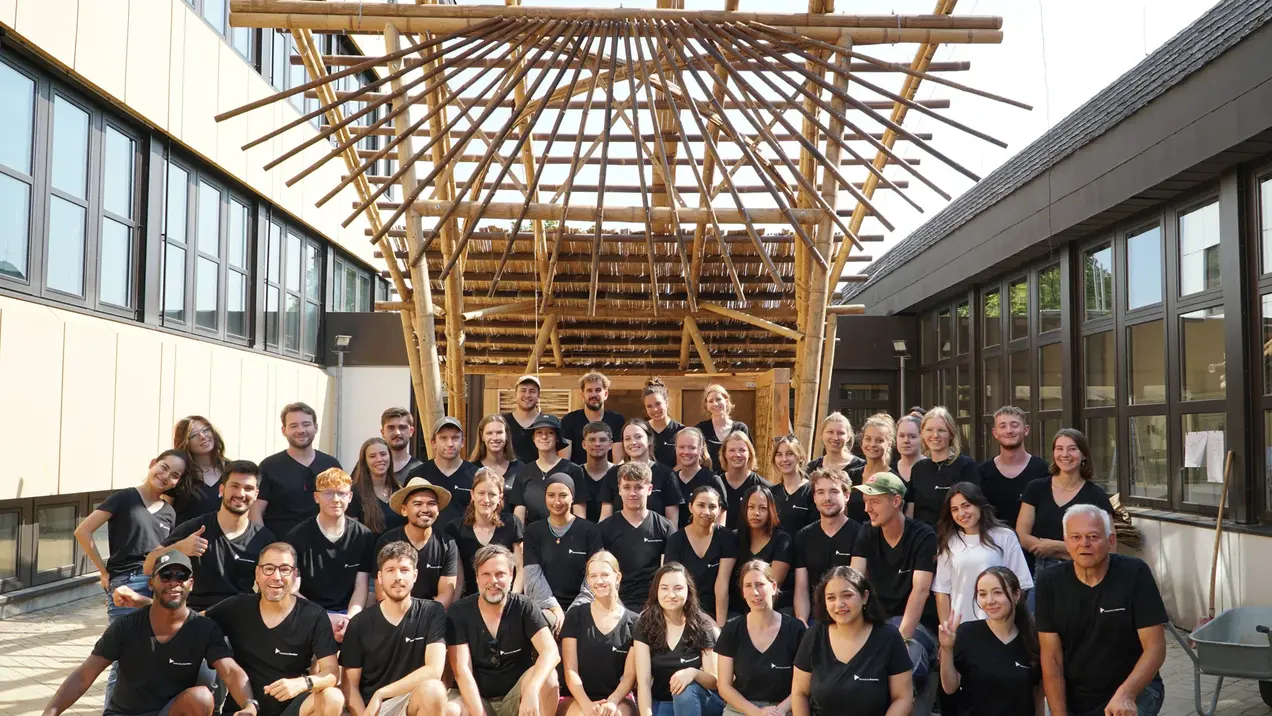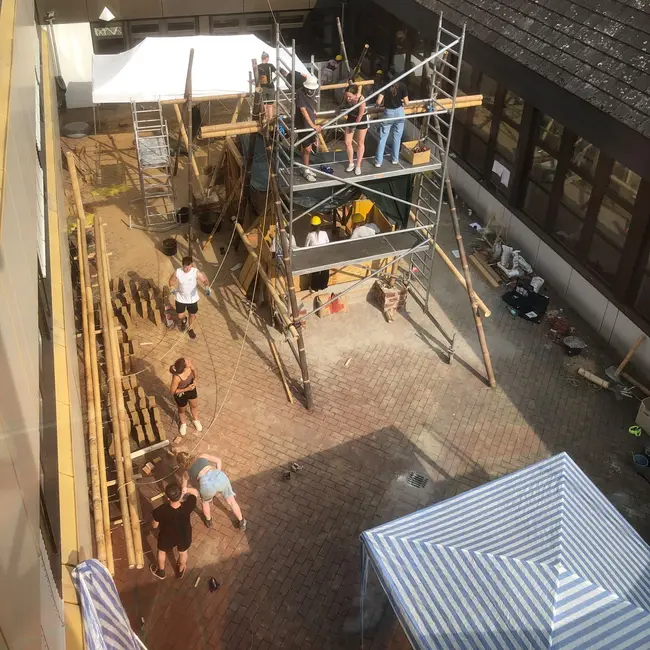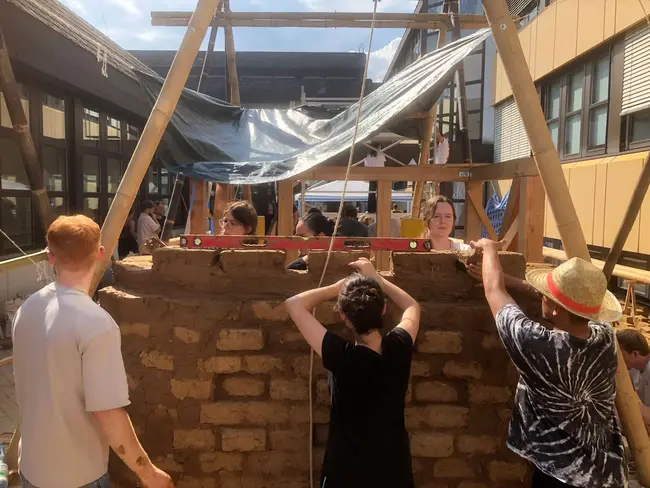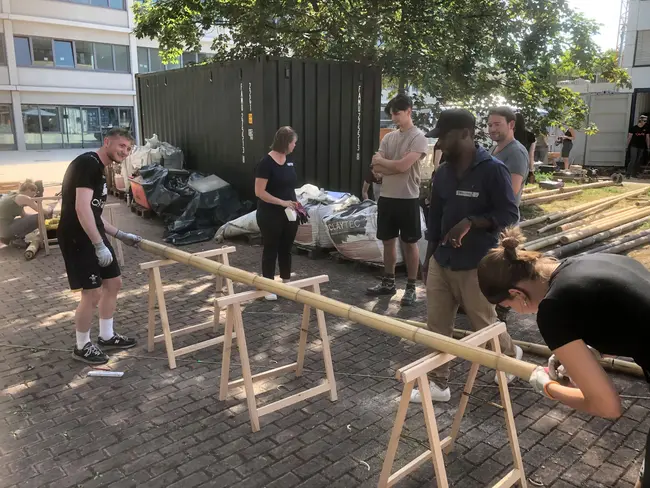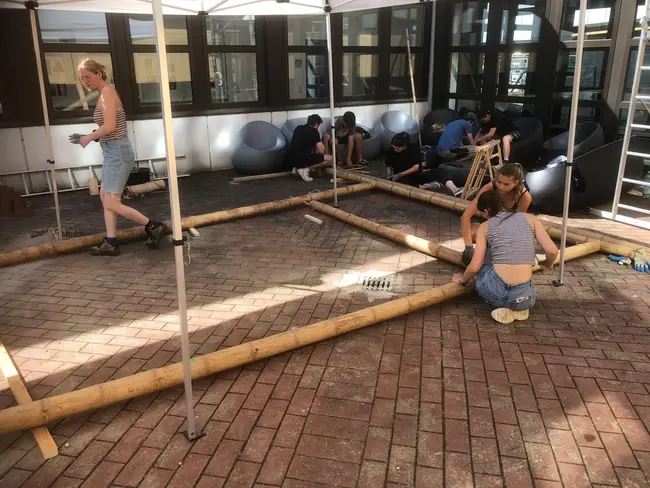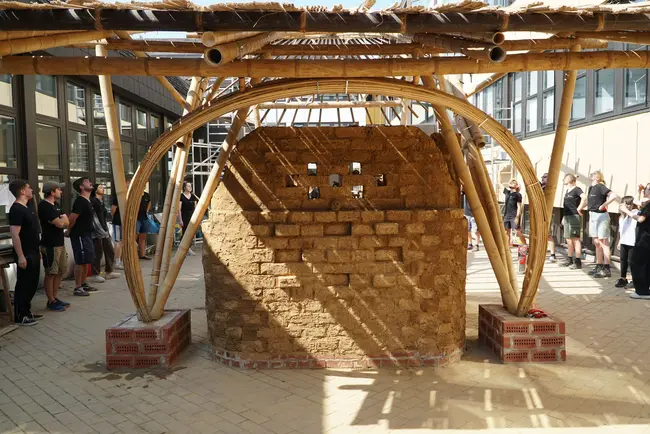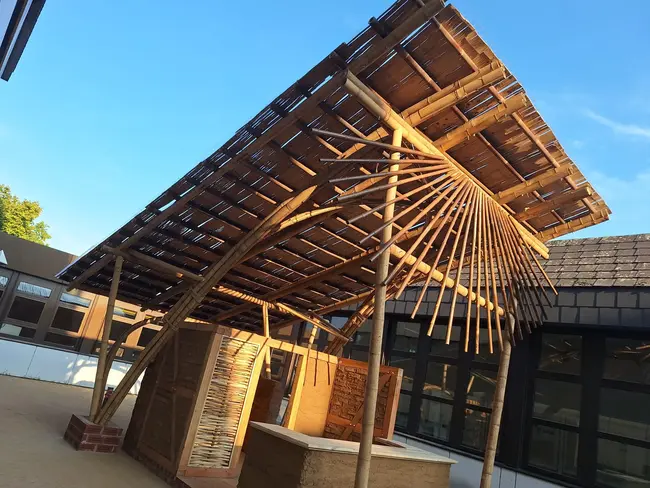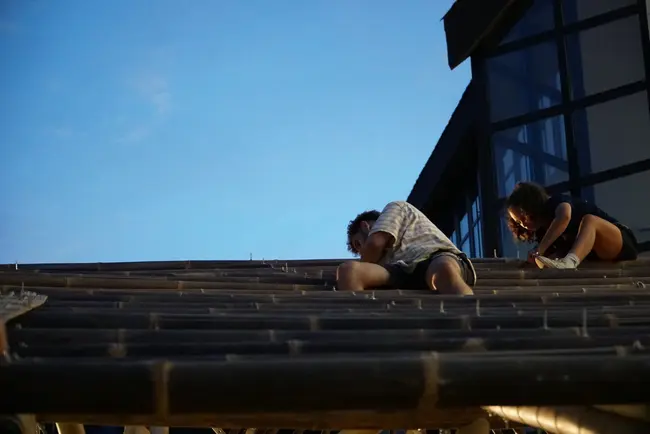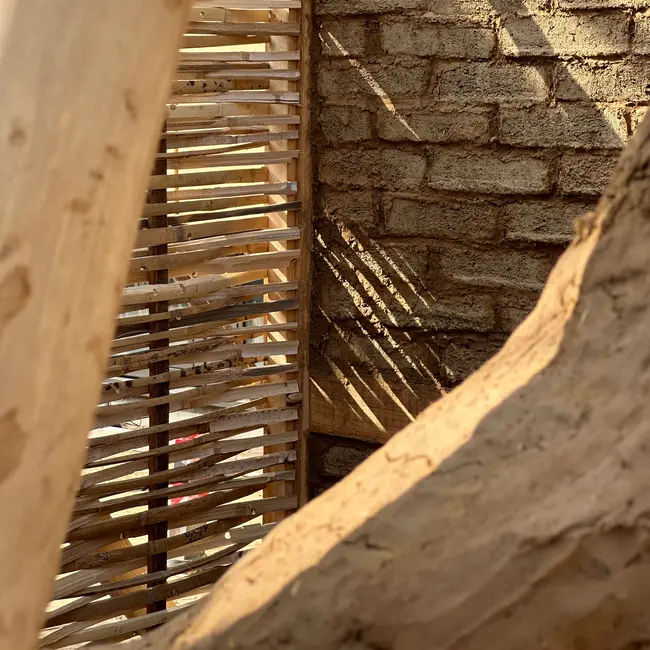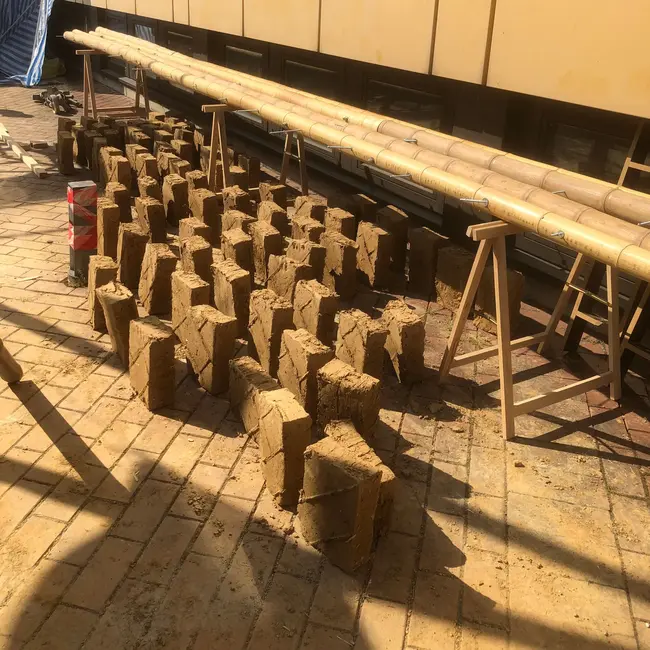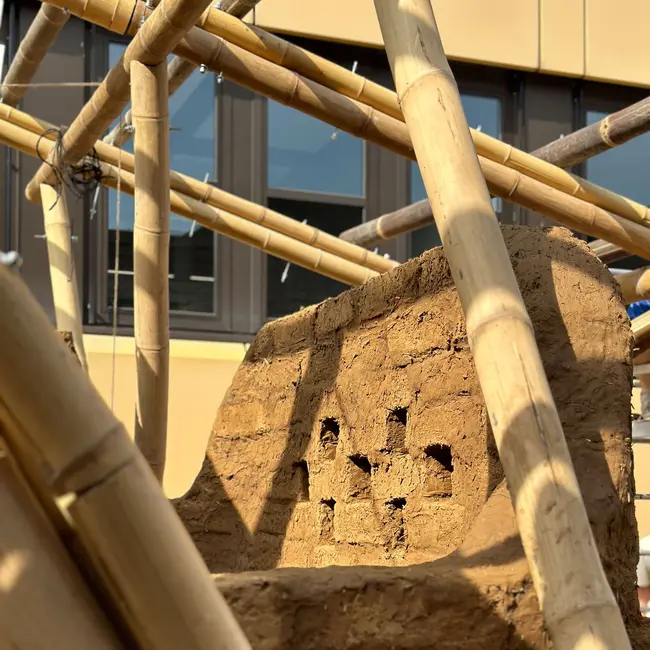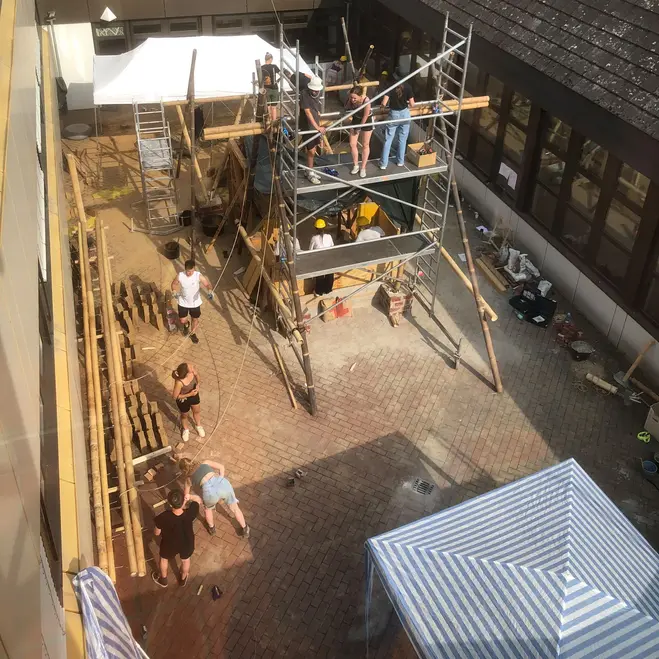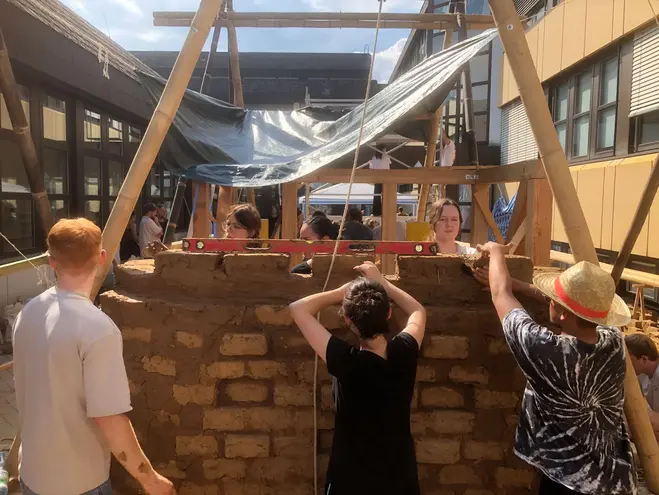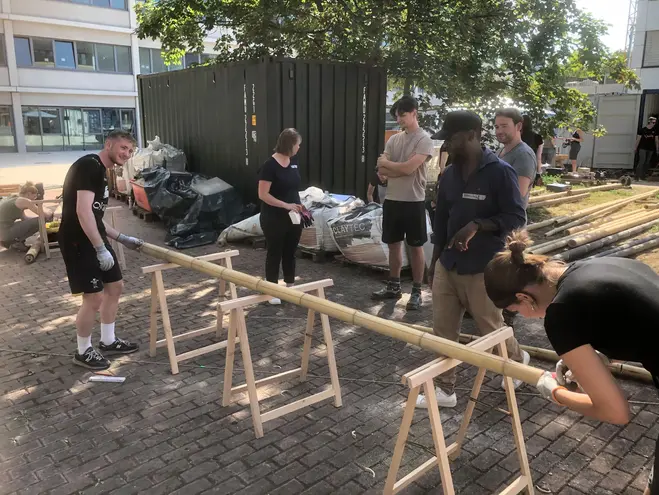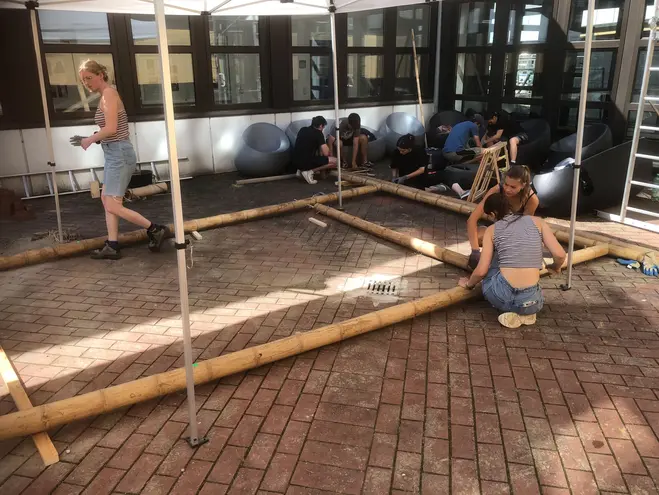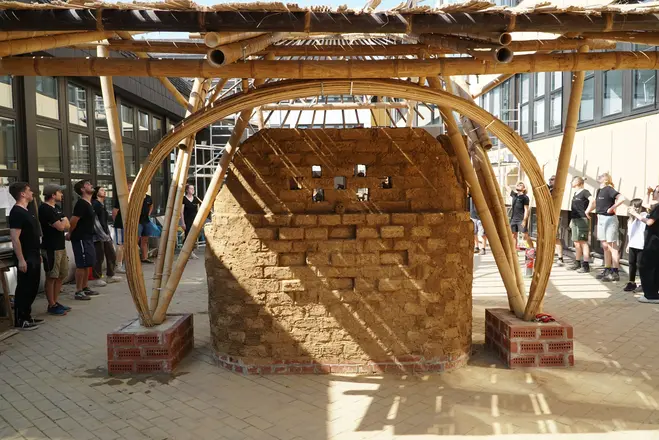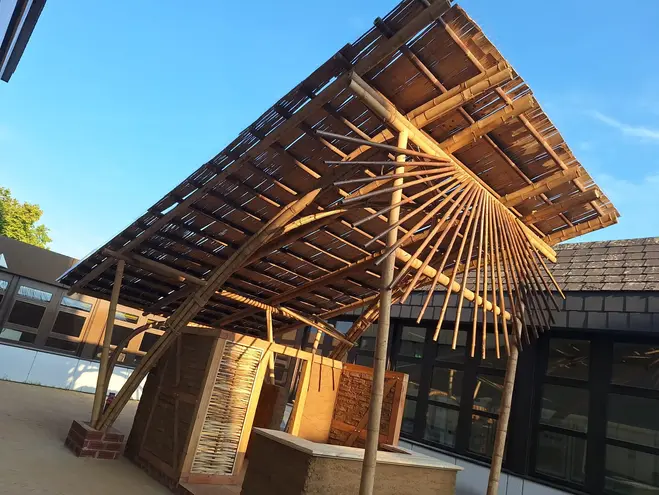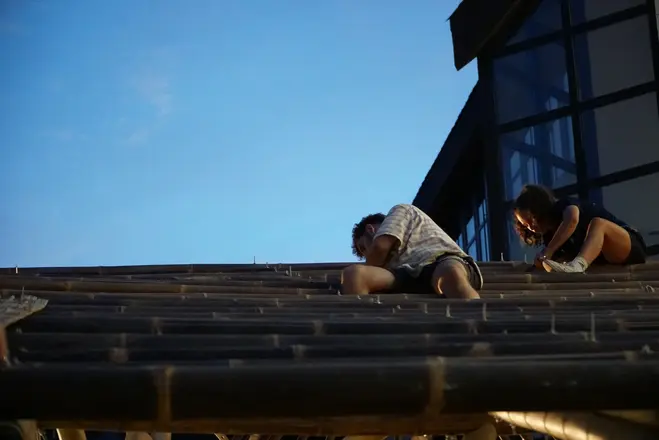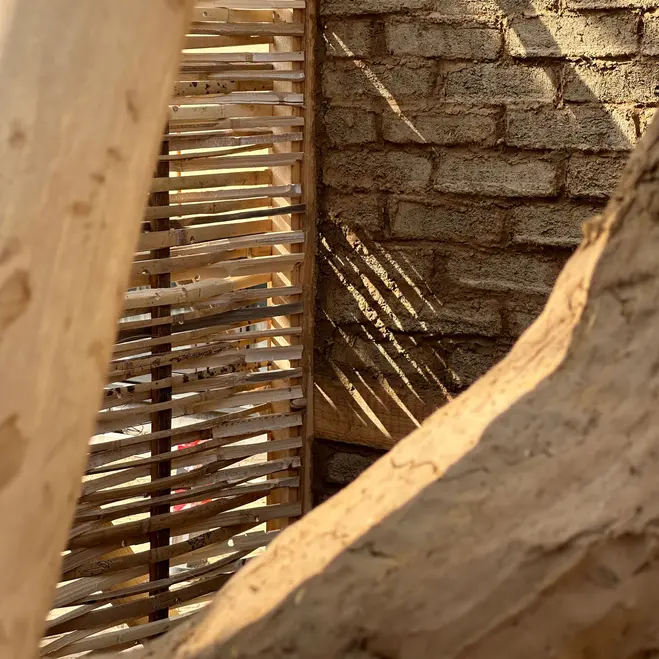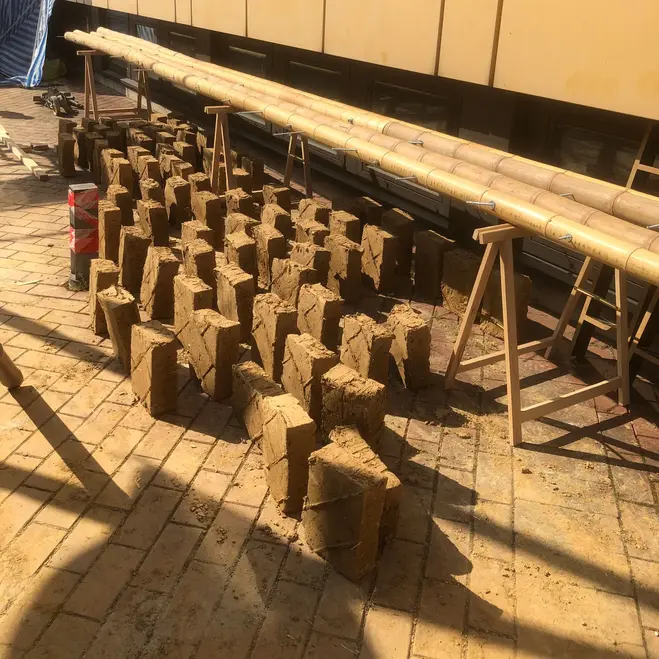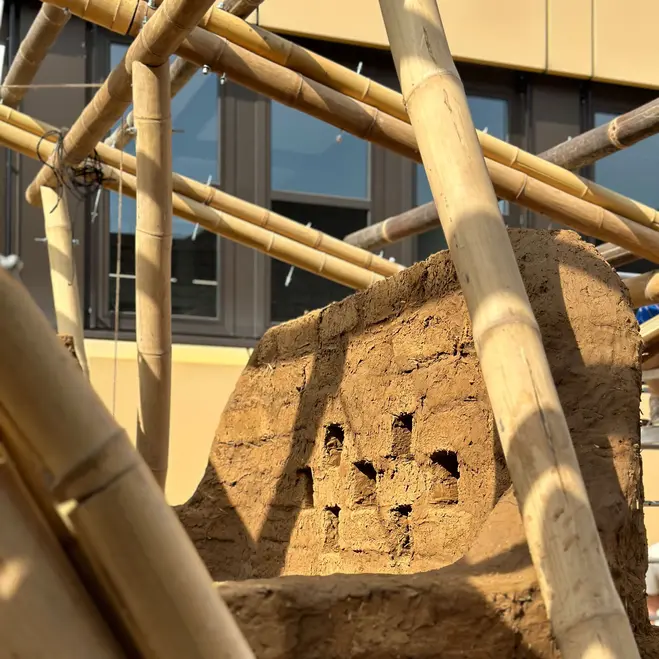As part of the "Climate-friendly Construction" seminar series, a Design Build compact week on renewable building materials took place for the third time at Hochschule RheinMain (HSRM) in August 2024. Under the direction of Prof. Sascha Luippold, the interdisciplinary and international hands-on summer school offers students of architecture, civil engineering and related disciplines the opportunity to gain practical experience in sustainable construction. The event is held regularly in cooperation with the Laboratory of Timber Engineering at HSRM and with the participation of a broad-based internal and external team of experts.
International cooperation with a focus on a sustainable building revolution
A total of 40 internal and external students from Germany and numerous other European and non-European countries took part in this year's Summer School, which is why it was held entirely in English for the first time this year. The participation of numerous students from HSRM partner universities, such as the Università Mediterranea di Reggio Calabria, the Universidad Internacional de Catalunya and the Vienna University of Technology, was particularly pleasing. This further expanded the international orientation of the seminar series and its importance as a platform for interdisciplinary and intercultural exchange on the current issues of a global, sustainable building transition, established new contacts and strengthened existing networks.
Construction with wood, bamboo, clay and straw
The seminar involved practical work with a wide range of renewable building materials such as wood, straw, clay and bamboo. Materials from an existing pavilion were dismantled, examined for their recyclability and prepared for reuse. The students then worked in various "component groups" to build a new, larger pavilion. This pavilion, which is to be integrated into campus life at the higher education institution as a bar, was used to test a wide range of construction techniques in addition to the various renewable building materials. In addition to traditional and industrial loam construction techniques, historical timber framework constructions and loam wickerwork were also used, for example. However, the main construction of the pavilion, in particular its cantilevered roof, is largely made of bamboo and serves as an abstract mockup to gain direct knowledge for a concrete project in Ghana. All of the work was led by a team of experts with specific experience of the respective materials and constructions. The interdisciplinary focus was on the connections and interfaces between the different components and trades.
Climate-friendly Construction as a social mission: three international examples
The seminar also included a lecture evening, which featured three exciting perspectives from international protagonists on the topic of socially sustainable construction with renewable building materials. Kevin Kimwelle, architect from South Africa and Kenya, reported on his diverse projects in Africa, America and Europe, which always focus on the local community and construction as a social process. The second lecture by "Frugal Bauen", a young German architecture collective, presented their innovative approaches and concepts for simple, regional construction, in which sustainable materials and local techniques are at the heart of socially motivated projects. The series of lectures concluded with a presentation by the architecture firm "SoPA: Social Practice Architecture", which specializes in earthen constructions and conveyed its specific approach to sustainable architecture in a social context in an inspiring way. The presentations were followed by the opening of the accompanying exhibition of various student works and research results, which were created as part of material research in the field of renewable building materials at the HSRM. The evening provided an excellent opportunity for networking and exchange among the participants themselves and with external guests.
Together for the future - informal exchange and intercultural networks
Even outside of the actual course and the accompanying lectures, the exchange between the participants played an important role during the intensive block week. The students were able to get to know each other better over evenings of pizza, card games and music, share their experiences in the context of sustainable architecture and make long-term international contacts.
Another highlight was the one-day visit by the German-Ghanaian organization "GROW Colourful Ghana", with which Hochschule RheinMain has been cooperating for several years. GROW is involved in the planning of a sustainable bamboo training center in Ghana and is thus establishing bamboo and other traditional building materials locally. The dialog with GROW gave the students an insight into the practical challenges and solutions of sustainable Construction in different cultural contexts.
The Summer School of the Faculty of Architecture and Civil Engineering was once again a complete success in 2024 - not only thanks to the practical construction work and theoretical input, but above all thanks to the intercultural experiences and intensive exchange between the students.
"The event impressively demonstrated the importance of practice-oriented learning, international cooperation and sustainable construction. It has once again made it clear that the construction industry can make a decisive contribution to a climate-friendly and sustainable future - the more global the network, the more powerful the impact," Dr. Oliver Bletz-Mühldorfer, Laboratory of Timber Engineering
